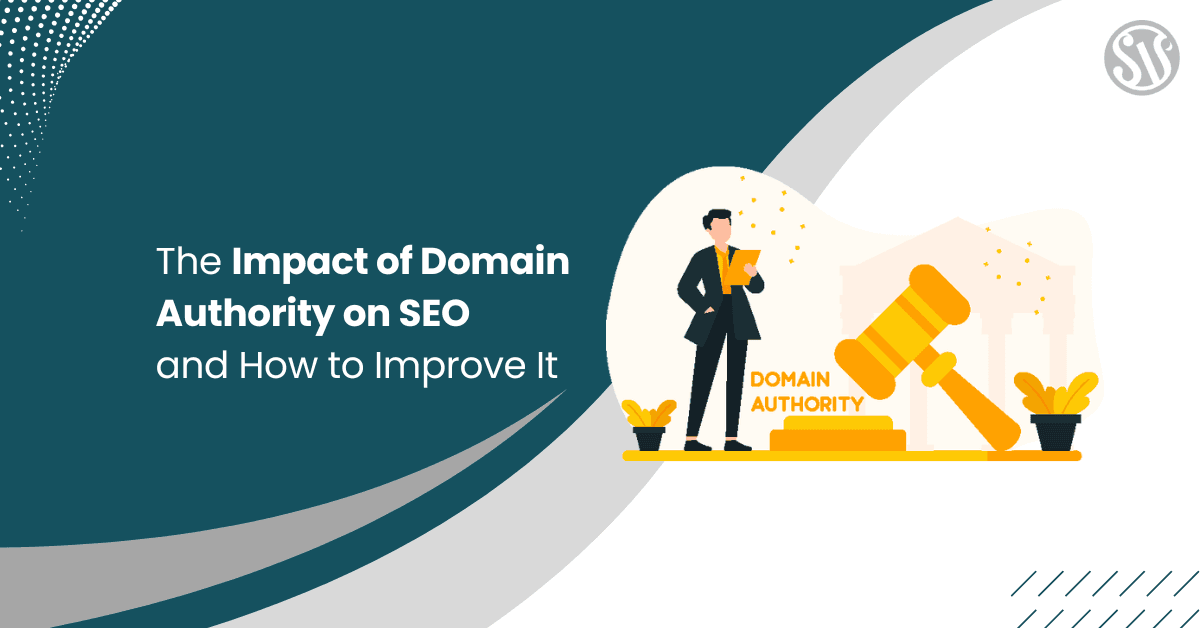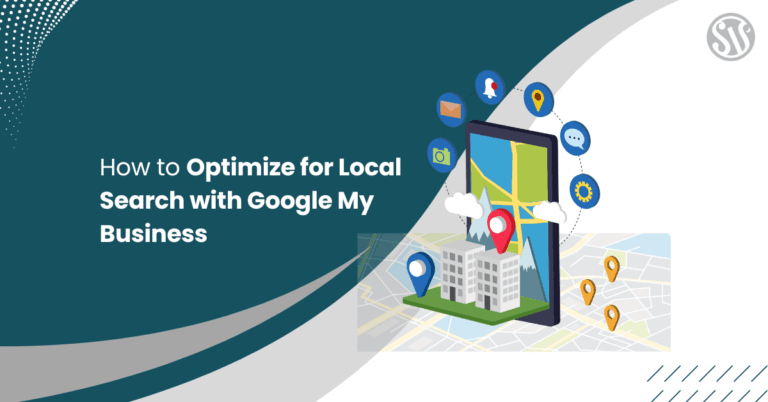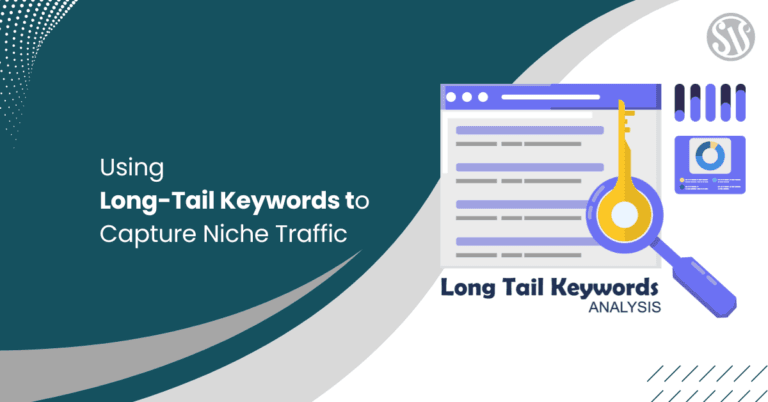The Impact of Domain Authority on SEO and How to Improve It
SEO remains a cornerstone for online success. One critical metric that often stirs discussion among SEO professionals is Domain Authority (DA). Understanding DA, how it impacts your site’s SEO performance, and practical strategies to enhance it can set your online presence apart from the competition.
In this blog post, we will delve into how Domain Authority affects your SEO strategy, examine the factors that influence it, and explore the best practices to enhance your website’s authority. Whether you’re an SEO novice or a seasoned professional looking to refine your approach, this guide will offer valuable insights and practical tips to help you navigate the complexities.
Understanding Domain Authority
With a clear understanding of Domain Authority, we now have a solid foundation to build. This insight helps us appreciate the factors contributing to a website’s ranking potential and sets the stage for exploring its practical impact.
In the upcoming section, we’ll explore how a high Domain Authority enhances search engine rankings, builds user trust, and provides a competitive edge in crowded markets. This connection between theory and real-world application is crucial for any business looking to strengthen its digital presence and achieve long-term success.
What Is Domain Authority?
Domain Authority is a metric developed by Moz that estimates how well a website will rank on SERPs. The score ranges from 1 to 100, with higher scores indicating a more remarkable ability to rank. Although Google does not officially use Domain Authority as a ranking signal, many SEO professionals rely on it as a benchmark tool.
The concept behind Domain Authority is to aggregate multiple signals into one comprehensive score. These signals can include the site’s overall link profile, the number of linking root domains, the quality of backlinks, the age of the domain, and even social signals. Combining these factors makes Domain Authority a valuable proxy for predicting a website’s ranking potential.
The Evolution of Domain Authority
When Moz introduced Domain Authority, it quickly became popular among digital marketers because it offered a tangible metric for comparing websites. Over time, the algorithm has become more sophisticated, incorporating more data points and adjusting weighting factors.
Today, while it’s one of many metrics used by SEO professionals, Domain Authority remains an essential indicator of overall site health and potential.
The Role of Domain Authority in SEO
Even though Domain Authority is not a direct ranking factor, it is intricately linked with many of the elements that Google’s algorithms consider.
For instance, a website with a high DA typically has a robust backlink profile, meaning it has earned endorsements from other authoritative websites. These endorsements boost the site’s credibility and help signal to search engines that the content is valuable and trustworthy.
Furthermore, Domain Authority can be a useful comparative metric when planning link-building and outreach campaigns. Marketers can identify link opportunities by analyzing competitor websites’ DA and benchmarking their progress.
Domain Authority serves as a diagnostic tool and a strategic guide, helping businesses understand their position in the digital landscape and what they need to do to improve their visibility.
The Impact of Domain Authority on SEO
The powerful benefits of a high DA come full circle when you consider how they collectively enhance your site’s overall digital presence. Improved search engine rankings, bolstered trust and credibility, and a competitive edge all create a self-reinforcing cycle of success.
Every element drives even greater visibility and authority as your site earns quality backlinks and solidifies its reputation. This interconnection paves the way for immediate improvements and lays a robust foundation for long-term SEO growth, setting the stage for actionable strategies to boost your online impact further.
Enhancing Search Engine Rankings
One of the primary benefits of a high DA is its potential to improve your search engine rankings. Although search engines do not use Domain Authority itself as a direct ranking factor, it correlates strongly with a range of SEO signals that Google does consider.
A high DA usually indicates that your site has earned a substantial number of quality backlinks, which signals to search engines that your website is reputable and authoritative. Consequently, higher DA websites often enjoy better organic rankings, which can lead to increased traffic and more conversions.
Building Trust and Credibility
A significant aspect of SEO is trust from search engines and users. Websites with higher Domain Authority are generally perceived as more credible. Potential customers who see a website with a high DA are likelier to trust its content, products, or services.
This enhanced credibility can lead to higher CTRs and increased user engagement, both positive signals to search engines. Furthermore, a high DA can facilitate easier relationship-building with other sites, opening doors to valuable link-building opportunities and collaborations.
When other reputable sites link to your content, it reinforces your website’s authority and can lead to a virtuous cycle of improved rankings and increased traffic.
Competitive Advantage in Crowded Markets
In industries where competition is fierce, every edge counts. A high Domain Authority can set you apart from competitors, making your site more attractive to users and other website owners considering partnership opportunities. Competitors with lower DA struggle to rank as well or secure high-quality backlinks, further entrenching your position in the market.
Focusing on strategies to improve DA can provide a critical boost for businesses entering a new niche or establishing themselves in a competitive space. By investing in quality content, link building, and technical SEO, even newer websites can gradually improve their DA and start competing with established players.
The Indirect Benefits of High Domain Authority
While the direct correlation between Domain Authority and rankings is compelling, the indirect benefits should not be overlooked. A high DA often leads to increased social shares, more frequent mentions in industry publications, and overall brand recognition.
Your online presence strengthens as your site becomes known for high-quality content and authoritative information. This enhanced reputation can drive more traffic, foster customer loyalty, and contribute to sustainable growth.
Factors Affecting Domain Authority
Understanding the elements contributing to DA is essential for developing an effective strategy to improve it. While Moz’s exact algorithm remains proprietary, several key factors are widely recognized as influencing a website’s DA.
1. Backlink Profile
The quality and quantity of backlinks are among the most significant factors affecting Domain Authority. Backlinks act as endorsements, signaling to search engines that other sites find your content valuable.
However, not all backlinks are created equal. Links from authoritative, relevant sites carry far more weight than those from low-quality or spammy sources.
- Quality over Quantity: A few backlinks from highly reputable sites can significantly boost your DA compared to numerous links from less authoritative sources.
- Diverse Link Sources: A varied backlink profile that includes links from different domains and types of websites (blogs, news outlets, educational institutions) is generally more beneficial.
- Context and Relevance: Links that are contextually relevant to your content have a higher impact on your DA and overall SEO.
2. Age of the Domain
The age of your domain can also influence its Domain Authority. Older domains tend to have more established link profiles and a longer track record of content, which can contribute to a higher DA. However, this does not mean newer sites cannot achieve high DA; instead, it highlights the importance of consistent, long-term SEO efforts.
3. Content Quality and Relevance
Content is king in the world of SEO, and high-quality content is essential for attracting and retaining backlinks. Websites regularly publishing well-researched, original, and engaging content are more likely to earn organic links from other authoritative sites. This, in turn, boosts your site’s overall credibility and Domain Authority.
- Depth and Detail: Comprehensive content that covers in-depth topics tends to perform better in attracting backlinks.
- Freshness: Regularly updating your content to reflect new information and trends can help maintain and improve your DA over time.
- User Engagement: Content that resonates with your audience, leading to more extended time on site and lower bounce rates, sends positive signals to search engines.
4. On-Page and Technical SEO
Technical SEO is crucial in how search engines crawl and index your website. Factors such as site speed, mobile-friendliness, and proper use of meta tags can impact your site’s overall SEO performance and, by extension, its Domain Authority.
- Site Structure: A well-organized site structure that is easy for users and search engines to navigate can help improve your DA.
- Mobile Optimization: With mobile devices accounting for a significant portion of web traffic, having a mobile-friendly site is essential.
- Page Speed: Faster-loading pages contribute to a better user experience and can indirectly impact your backlink profile, as users are likelier to share content that loads quickly.
5. Social Signals and Brand Mentions
While social signals are not direct ranking factors, they contribute to your online presence. High engagement on social media leads to more visibility, organic shares, and, eventually, more backlinks.
Additionally, brand mentions, even those without direct links, can enhance your website’s authority in the eyes of search engines.
- Social Media Engagement: Engaging with your audience on platforms like X(Twitter), Facebook, LinkedIn, and Instagram amplifies your content’s reach.
- Online Reputation: A strong, positive online reputation often correlates with a higher Domain Authority, reflecting broader recognition of your brand’s credibility.
Strategies to Improve Domain Authority
Improving your DA is a long-term investment that requires a multifaceted approach. Here, we explore several actionable strategies that can help boost your website’s authority and, by extension, its performance in search engine rankings.
1. Build a High-Quality Backlink Profile
Since backlinks are the cornerstone of Domain Authority, developing a robust backlink strategy is paramount.
- Guest Blogging: Contribute well-researched articles to reputable blogs within your industry. Ensure that these posts are high-quality, offer unique insights, and naturally include links to your website.
- Outreach and Relationship Building: Identify authoritative websites and influencers in your niche and develop genuine relationships. Personalized outreach can result in natural backlinks and collaborative opportunities.
- Create Link-Worthy Content: Focus on producing content that stands out. This includes in-depth guides, original research, case studies, and data-driven posts that naturally attract backlinks.
- Utilize Broken Link Building: Find broken links on authoritative sites and offer your relevant content as a replacement. This win-win approach helps the site owner fix issues while earning you a quality backlink.
- Engage in Industry Forums and Communities: Contributing valuable insights in relevant online communities can increase your visibility and may result in natural backlinks over time.
2. Optimize Your Content Strategy
Content is at the heart of SEO. Creating and maintaining high-quality content can significantly impact your Domain Authority.
- Comprehensive Guides and Tutorials: Long-form, detailed content covering a topic can attract more backlinks and higher engagement.
- Regular Updates: Periodically update older content to ensure it remains accurate and relevant. This practice improves user experience and signals to search engines that your site is continuously maintained.
- Diversify Content Formats: To reach a broader audience, consider incorporating videos, infographics, podcasts, and interactive elements in addition to text.
- Focus on User Intent: Understand what your audience is looking for and tailor your content to address their questions and pain points. Content that effectively meets user needs will be shared and linked to.
3. Strengthen Your Technical SEO
A technically sound website lays the foundation for improved Domain Authority. Investing in technical SEO can enhance site performance and user experience.
- Improve Site Speed by Optimizing images, leveraging browser caching, and considering using a CDN to reduce load times.
- Mobile Optimization: Ensure your website is fully responsive and provides a seamless device experience.
- Secure Your Site: Implement HTTPS to secure your website. Security is a ranking factor and helps build user trust.
- Optimize URL Structures and Navigation: A clear, logical site structure not only improves usability but also aids search engine crawlers in indexing your content efficiently.
- Conduct Regular Audits: Use tools to audit your site for broken links regularly, duplicate content, and other technical issues that might negatively impact your DA.
4. Enhance Your Social Media Presence
While social media may not directly affect Domain Authority, it is critical in content promotion and brand building.
- Share Your Content Widely: Use social media platforms to share your blog posts, guides, and other content. The more exposure your content gets, the more likely influential sites will notice and link to it.
- Engage with Your Audience: Foster a community around your brand by actively engaging with followers, responding to comments, and encouraging discussions. Increased engagement can lead to more brand mentions and natural backlinks.
- Leverage Influencer Collaborations: Partner with influencers and thought leaders in your niche to expand your reach. These partnerships can drive traffic and boost your website’s perceived authority.
5. Monitor and Disavow Toxic Links
Not all backlinks are beneficial. Low-quality or spammy links can harm your Domain Authority. Regularly audit your backlink profile to identify and disavow toxic links.
- Use SEO Tools: Tools like Moz’s Link Explorer, Ahrefs, or SEMrush can help you monitor your backlink profile and identify problematic links.
- Disavow When Necessary: If you discover harmful links that could drag down your site’s authority, use Google’s Disavow Tool to inform search engines that these links should not be considered in your ranking.
6. Leverage Local SEO and Niche Directories
For businesses targeting specific geographical areas or niche markets, local SEO and niche directories can provide valuable backlinks.
- Local Citations: Ensure your business is listed in reputable local directories and on platforms like Google My Business.
- Niche-Relevant Sites: Identify your industry’s directories, associations, and websites offering increased visibility and backlinks. These links can help reinforce your website’s authority within your specific market.
Monitoring Your Progress
Monitoring your progress with these powerful tools gives you a clear picture of your current performance and lays the groundwork for setting realistic, achievable goals. As you gain insights, it’s essential to remember that SEO improvements take time.
How to Track Domain Authority
Monitoring the progress of your Domain Authority improvement efforts is as important as implementing the strategies themselves. Several tools allow you to monitor your DA score and other vital SEO metrics.
- Moz Link Explorer: Moz developed Domain Authority, so their Link Explorer is a natural starting point. It provides your DA score, details on your backlink profile, spam score, and more.
- Ahrefs and SEMrush: Although these tools use their metrics (like Ahrefs’ Authority Rating), they can still provide valuable insights into the health of your backlink profile and overall site performance.
- Google Analytics and Search Console: While these tools don’t directly provide DA, monitoring your organic traffic, bounce rate, and other user engagement metrics can help you understand the broader impact of your SEO efforts.
Setting Realistic Goals
Improving DA is a long-term process that doesn’t happen overnight. It’s important to set realistic, incremental goals rather than expecting immediate results. Regularly review your progress, adjust your strategies, and celebrate the small victories along the way.
Consistency is key; even minor improvements in your backlink profile and content quality can significantly boost your DA over time.
Conclusion
Domain Authority is a powerful metric for gauging a website’s overall SEO health and competitive potential. While it’s not a direct ranking factor, its correlation with key SEO elements makes it an invaluable tool for digital marketers.
Understanding the factors influencing DA and implementing a holistic strategy that includes quality content, link building, and technical optimization. Embrace the journey with realistic goals and a comprehensive approach; your website will climb the ranks over time.







